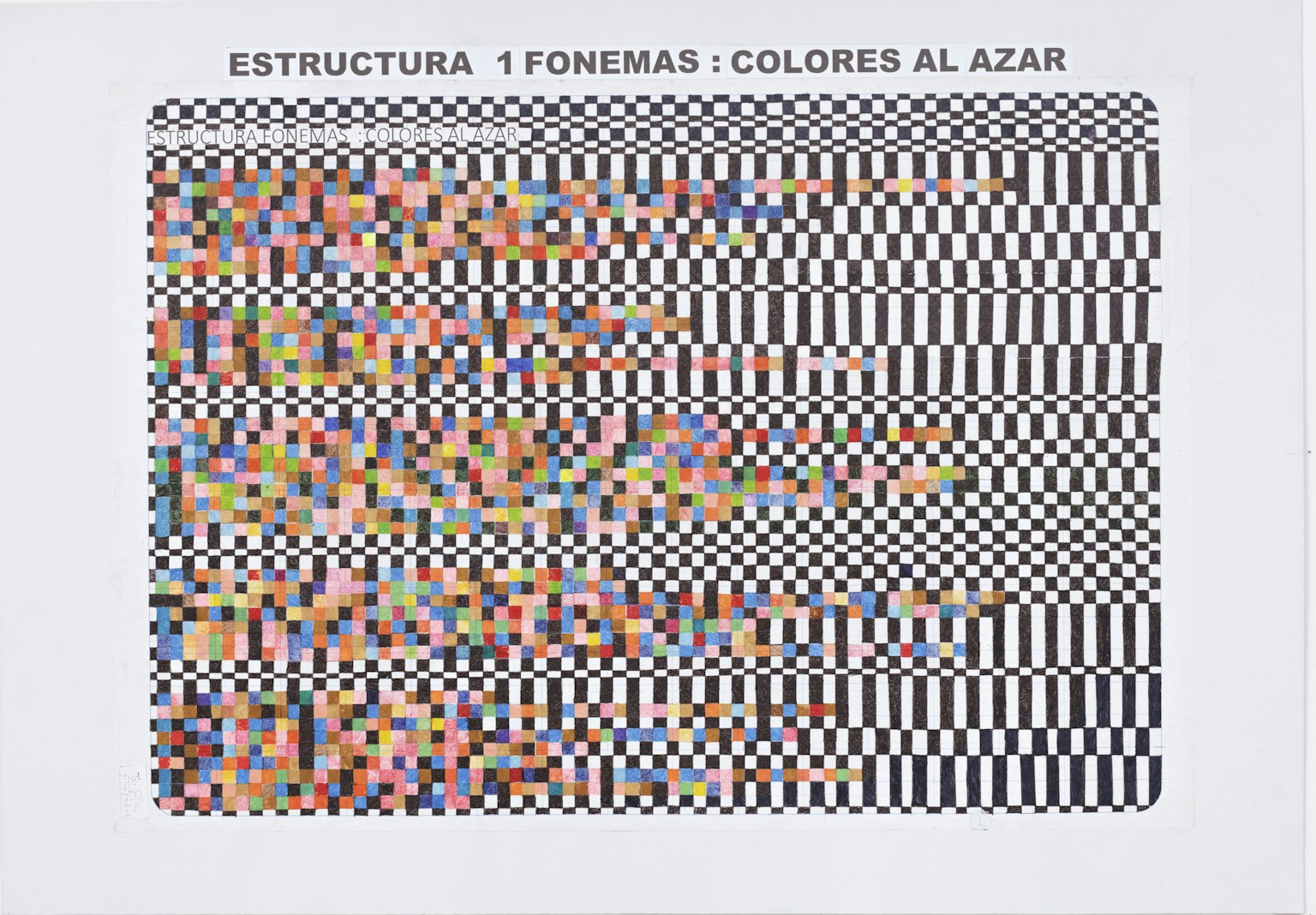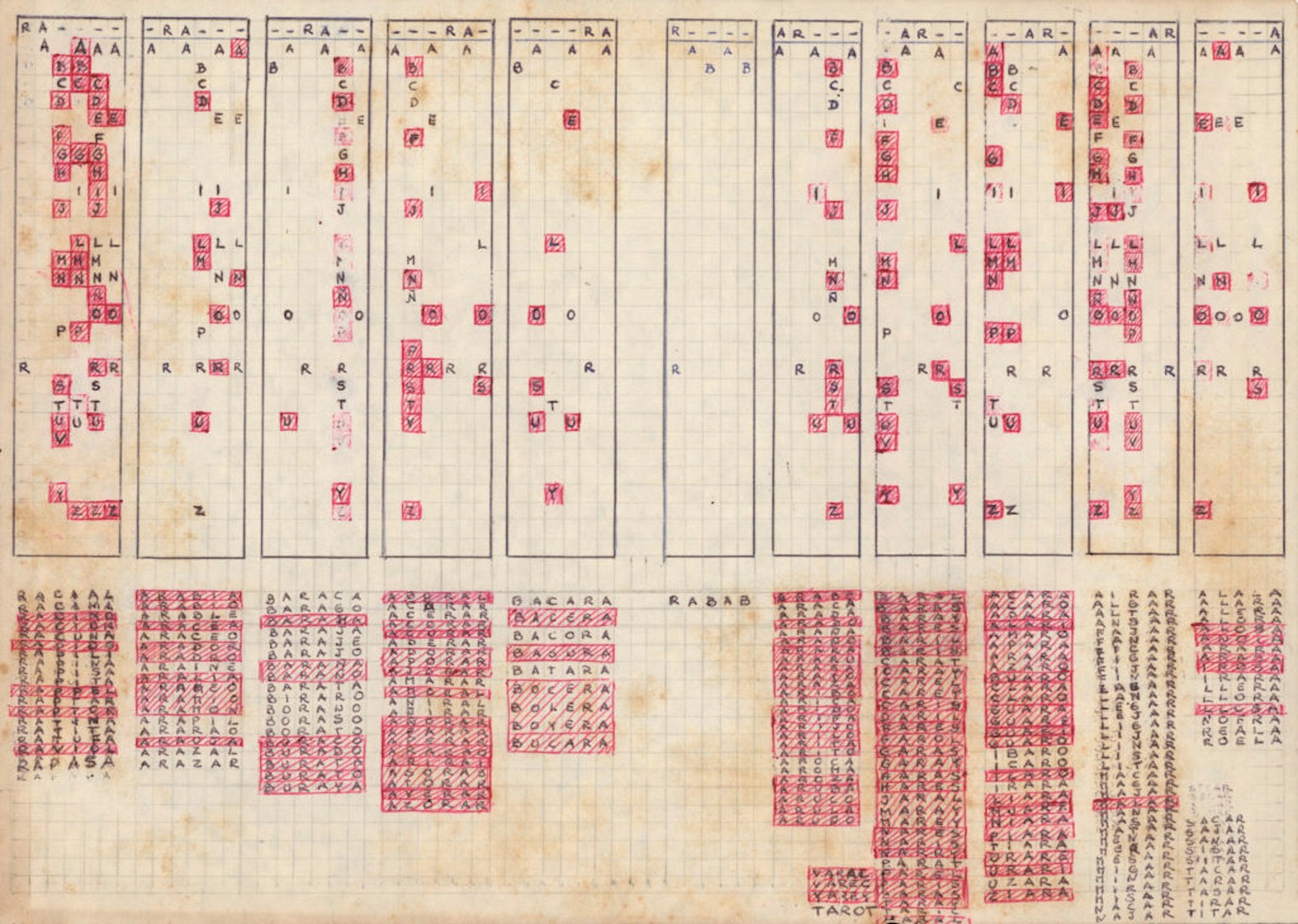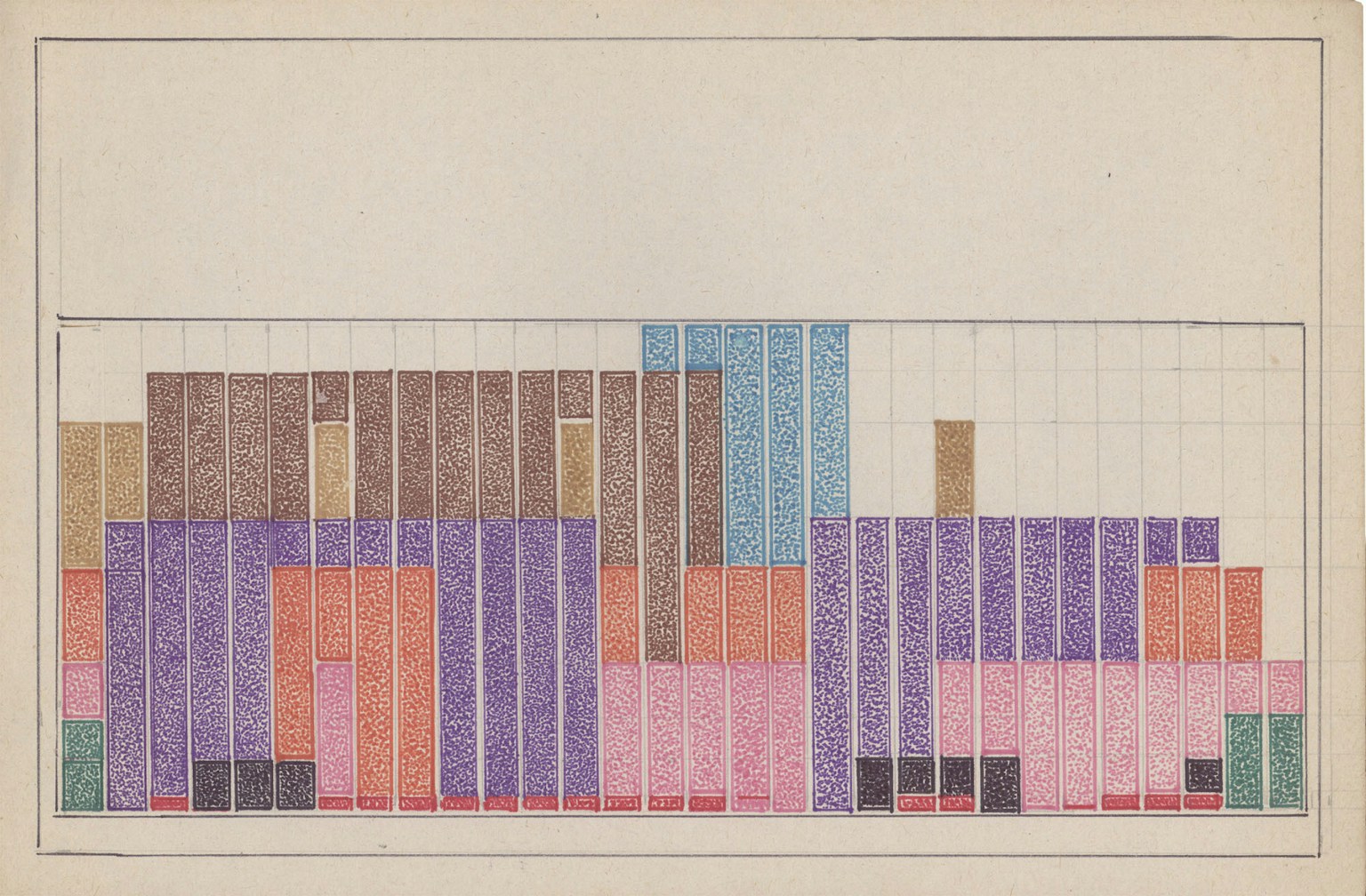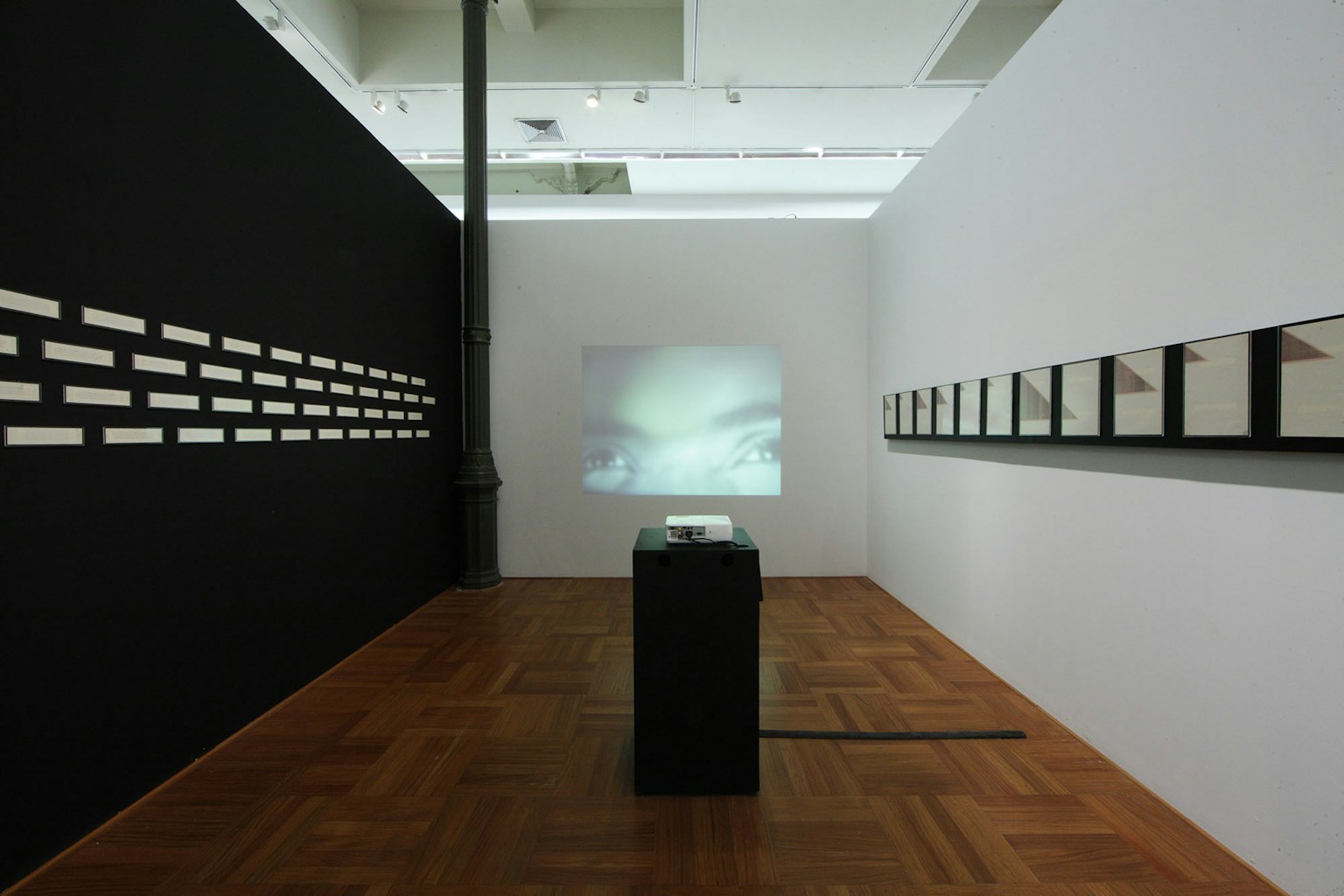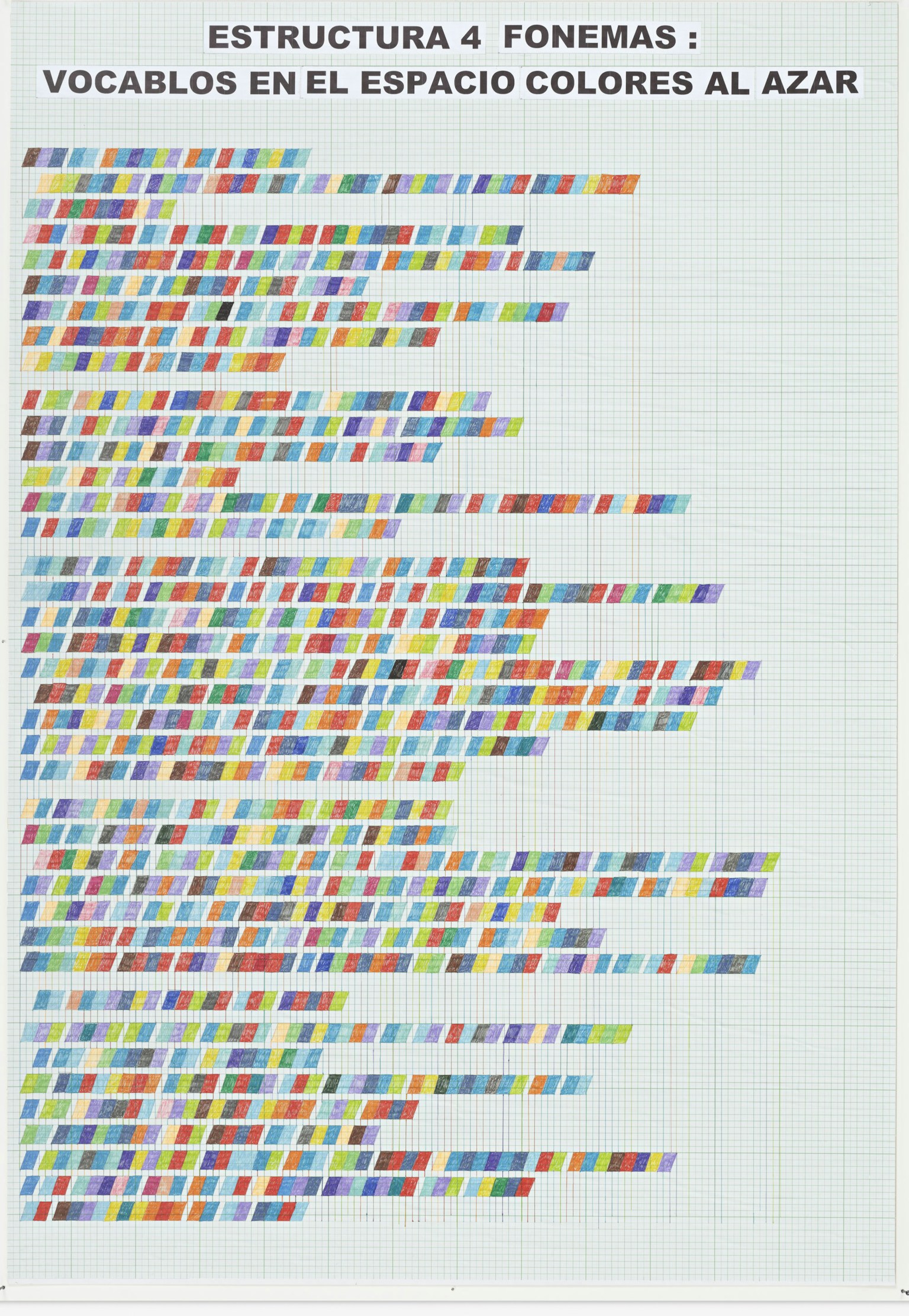Teresa Burga | An Artist or a Computer? Conceptual works from the 1970s
13.May.18

S.M.A.K. shows conceptual works from the 1970s by Teresa Burga.
Teresa Burga (1935, Iquitos, Peru) is an important figure in the recent history of Latin-American art. She started her activities in 1960s Peru as a pop artist and later turned to conceptual art. In this given context, she seemed to be doomed to remain invisible or soon to quickly fade into oblivion: she was an artist, a woman and Peruvian under a military regime, and a rebel in a traditional patriarchal system. In addition, her work did not have the figurative, folkloric character that was expected, but was conceptual, immaterial and leaned more towards academic research than free artistic imagination.
In the 1970s, Teresa Burga created experimental installations based on administrative reports, meticulous diagrams, educational objects and designs for absurd machines. They contain the coded results of actions carried out and instructions for future projects. They also quantify entities like her own body, poems or population groups. Although she was not openly political, through her unorthodox practice she questioned aspects of modern society such as visual representation in mass culture, the automation and bureaucratisation of work and leisure, and woman’s identity. In her work, Burga put the emphasis on open processes. She sees art as the formulation of proposals which the viewer can complete by adding meaning.
The exhibition at S.M.A.K. is intended to provide an insight into Teresa Burga’s conceptual work on the basis of the installations 4 Mensajes (1974) and Borges (1974), plus a series of drawings and objects from the 1970s.
The title refers to an interview with Teresa Burga that was published under the same heading in the Peruvian magazine 'Correo' (17 July 1972, p. 23)

